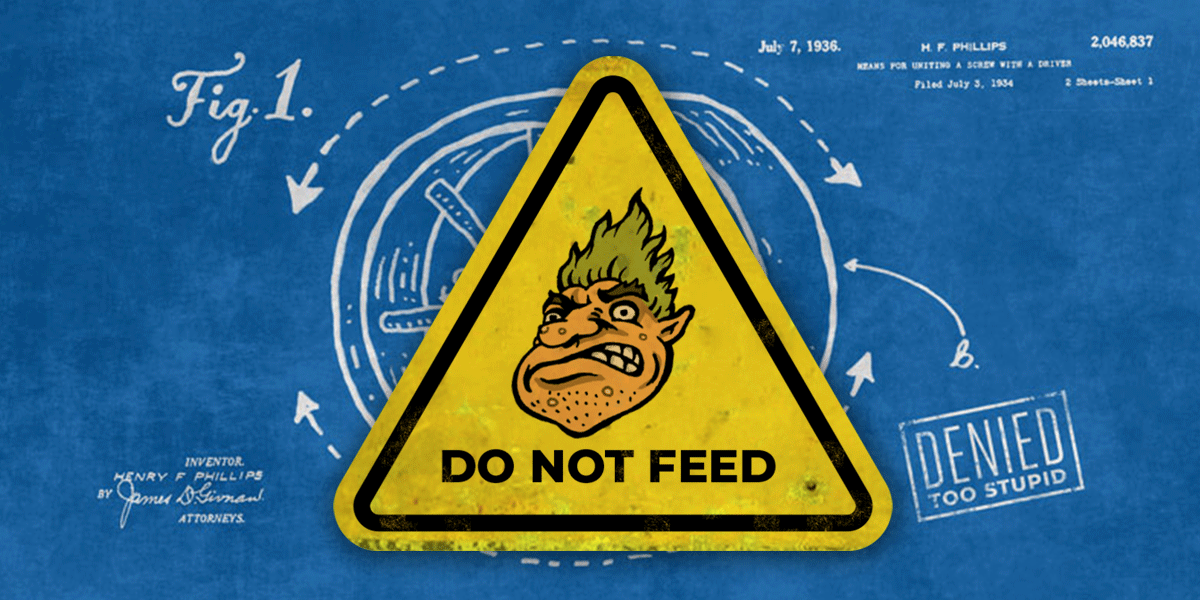Good news: the Senate Judiciary Committee has dropped one of the two terrible patent bills it was considering, the patent-troll-enabling Patent Eligibility Restoration Act (PERA).
Bad news: the committee is still pushing the PREVAIL Act, a bill that would hamstring the U.S.’s most effective system for invalidating bad patents. PREVAIL is a windfall for patent trolls, and Congress should reject it.
Tell Congress: No New Bills For Patent Trolls
One of the most effective tools to fight bad patents in the U.S. is a little-known but important system called inter partes review, or IPR. Created by Congress in 2011, the IPR process addresses a major problem: too many invalid patents slip through the cracks at the U.S. Patent and Trademark Office. While not an easy or simple process, IPR is far less expensive and time-consuming than the alternative—fighting invalid patents in federal district court.
That’s why small businesses and individuals rely on IPR for protection. More than 85% of tech-related patent lawsuits are filed by non-practicing entities, also known as “patent trolls”—companies that don’t have products or services of their own, but instead make dozens, or even hundreds, of patent claims against others, seeking settlement payouts.
So it’s no surprise that patent trolls are frequent targets of IPR challenges, often brought by tech companies. Eliminating these worst-of-the-worst patents is a huge benefit to small companies and individuals that might otherwise be unable to afford an IPR challenge themselves.
For instance, Apple used an IPR-like process to invalidate a patent owned by the troll Ameranth, which claimed rights over using mobile devices to order food. Ameranth had sued over 100 restaurants, hotels, and fast-food chains. Once the patent was invalidated, after an appeal to the Federal Circuit, Ameranth’s barrage of baseless lawsuits came to an end.
PREVAIL Would Ban EFF and Others From Filing Patent Challenges
The IPR system isn’t just for big tech—it has also empowered nonprofits like EFF to fight patents that threaten the public interest.
In 2013, a patent troll called Personal Audio LLC claimed that it had patented podcasting. The patent titled “System for disseminating media content representing episodes in a serialized sequence,” became the basis for the company’s demand for licensing fees from podcasters nationwide. Personal Audio filed lawsuits against three podcasters and threatened countless others.
EFF took on the challenge, raising over $80,000 through crowd-funding to file an IPR petition. The Patent Trial and Appeals Board agreed: the so-called “podcasting patent,” should never have been granted. EFF proved that Personal Audio’s claims were invalid, and our victory was upheld all the way to the Supreme Court.
The PREVAIL Act would block such efforts. It limits IPR petitions to parties directly targeted by a patent owner, shutting out groups like EFF that protect the broader public. If PREVAIL becomes law, millions of people indirectly harmed by bad patents—like podcasters threatened by Personal Audio—will lose the ability to fight back.
PREVAIL Tilts the Field in Favor of Patent Trolls
The PREVAIL Act will make life easier for patent trolls at every step of the process. It is shocking that the Senate Judiciary Committee is using the few remaining hours it will be in session this year to advance a bill that undermines the rights of innovators and the public.
Patent troll lawsuits target individuals and small businesses for simply using everyday technology. Everyone who can meet the legal requirements of an IPR filing should have the right to challenge invalid patents. Use our action center today and tell Congress: that’s not a right we want to give up today.
Tell Congress: reject the prevail act
More on the PREVAIL Act:



